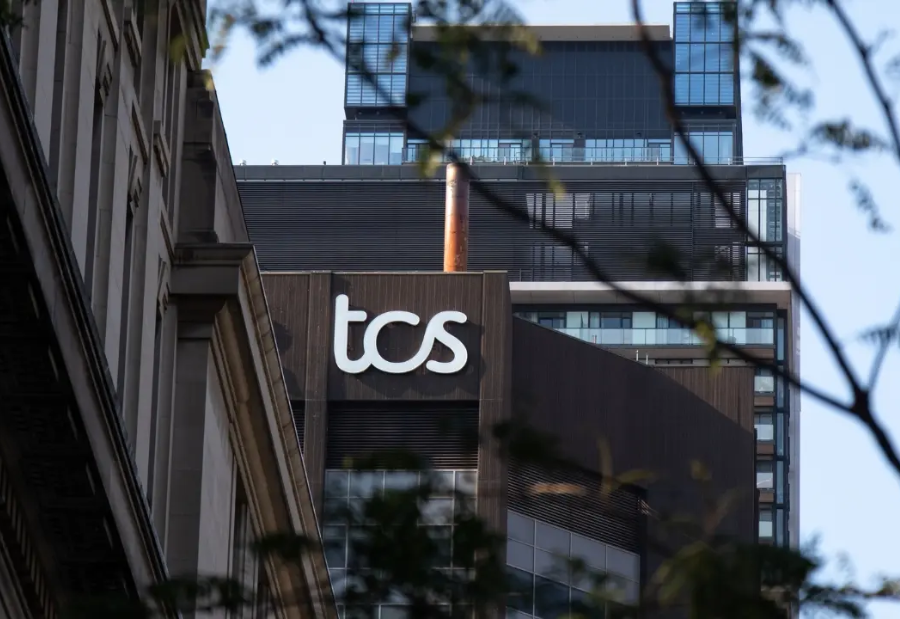Tata Consultancy Services (TCS) has declared intentions to eliminate around 12,000 positions, or roughly 2% of its whole workforce. This is a big step for a corporation that has long been the backbone of India’s IT industry, with over 600,000 employees globally as of June 2025.
The organization describes these cuts as part of its strategy to prepare for the future and plans to spread them out over the fiscal year 2026 (FY26), according to media sources. However, this move raises uneasy concerns about what that future truly looks like for an industry that has turned cities like Hyderabad and Bangalore into digital centers and employs millions of Indians.
Everyone wants to be future-ready for drastic technology shift
TCS aims to train and redeploy its workforce in order to become what they refer to as a “future-ready” organization. K Krithivasan, the CEO and MD of TCS, has further asserted that the layoffs are solely the result of a lack of job opportunities and a strict mismatch. They are also placing large bets on automation, improved infrastructure, and artificial intelligence (AI). According to the corporation, this implies that fewer workers are required to do the same tasks, particularly in middle and senior management positions.
Businesses in the IT sector are replacing people with machines and intelligent software. Computers may now perform repetitive, tedious tasks that formerly took up a lot of time. The management of TCS thinks that doing this will save them money and free them up to concentrate on the more complex tasks that genuinely benefit their clients.
Money troubles and global uncertainty
These layoffs are being caused by more than simply technology improvements. Businesses are becoming more frugal with their IT investment due to the global economic recession, growing geopolitical tensions, and market volatility. These macroeconomic issues have been affecting TCS, which reported revenue of Rs 63,437 crore for Q1 FY25, a little increase of 1.3% over the prior year. The firm reported a 3.1% drop in sales in constant currency, indicating a decrease in demand for its services, even though its net earnings increased by 6% to Rs 12,760 crore.
TCS has tightened internal procedures to increase productivity in the face of these constraints. For example, bench time—the time spent by employees in between projects—has been limited to 35 days, and employees must now log 225 billable days annually. The company’s continuous reorganization is aided by these policies, which are intended to boost operational efficiency and indicate a rising desire to optimize return on human capital.
What’s being offered to the laid off employees?
TCS is providing a range of support to employees impacted by the layoffs:
Reskilling & redeployment: Opportunities for affected employees to transition into new roles within the company through training.
Financial benefits: Severance packages and extended insurance coverage.
Outplacement support: Job search assistance and career counselling to help employees find new opportunities.
Counselling services: Professional counselling to support emotional well-being during the transition.
Gradual transition: Layoffs will be spread over the course of FY26, giving employees ample time to prepare.
TCS’s approach aims to ensure a compassionate, supportive transition for those affected.
TCS might’ve started a domino trail
It is reasonable to assume that other IT firms are currently keeping a careful eye on TCS. This kind of action by the largest company in the market typically signals that others will follow suit.
It is not just TCS that is pushing for automation and cost reduction. This has already been happening for a while in India’s larger tech community. Smaller businesses and startups like Byju’s and Ola Electric have been laying off employees in an effort to decrease expenses and turn a profit.
IT workers should brave themself for a whole new world
These layoffs occur at a time when the Indian IT sector as a whole is attempting to determine the type of people it will require in the future. The abilities that people require will fundamentally shift as AI becomes a more integral element of how firms operate.
TCS claims that rather to just firing its employees, they are attempting to assist them in acquiring new skills and transitioning into various professions. They want to ensure that they can continue to provide their customers with high-quality service while assisting their staff in adjusting to this new workplace.
The entire industry will be impacted by this. Companies will likely require fewer people in conventional roles, particularly in middle management, as they depend more on automation and artificial intelligence to keep things running smoothly. However, they may require more highly qualified experts who are familiar with AI and other emerging technologies. TCS is not alone in this strategy; the Indian IT industry as a whole is likely to undergo similar reorganization initiatives.
Also read: Viksit Workforce for a Viksit Bharat
Do Follow: The Mainstream formerly known as CIO News LinkedIn Account | The Mainstream formerly known as CIO News Facebook | The Mainstream formerly known as CIO News Youtube | The Mainstream formerly known as CIO News Twitter |The Mainstream formerly known as CIO News Whatsapp Channel | The Mainstream formerly known as CIO News Instagram
About us:
The Mainstream formerly known as CIO News is a premier platform dedicated to delivering latest news, updates, and insights from the tech industry. With its strong foundation of intellectual property and thought leadership, the platform is well-positioned to stay ahead of the curve and lead conversations about how technology shapes our world. From its early days as CIO News to its rebranding as The Mainstream on November 28, 2024, it has been expanding its global reach, targeting key markets in the Middle East & Africa, ASEAN, the USA, and the UK. The Mainstream is a vision to put technology at the center of every conversation, inspiring professionals and organizations to embrace the future of tech.




